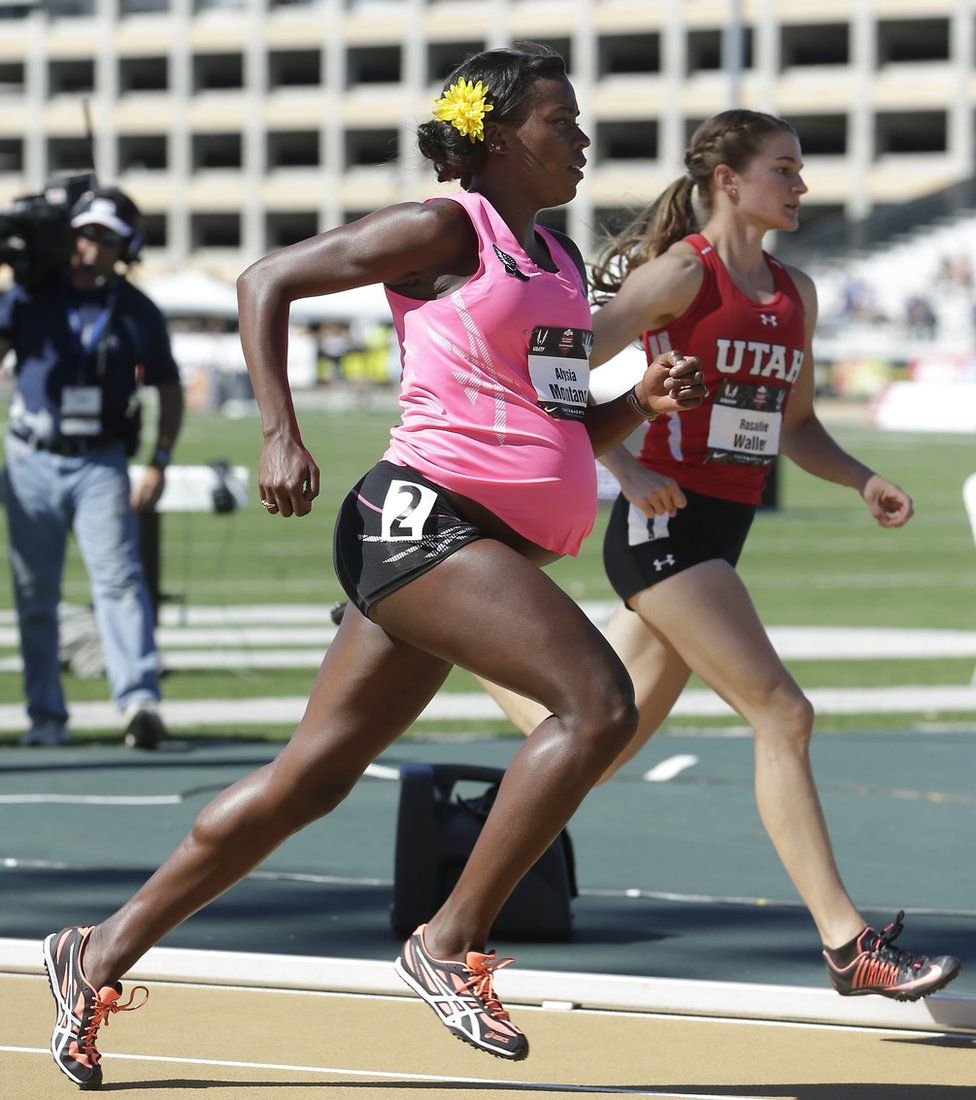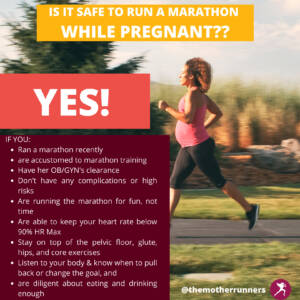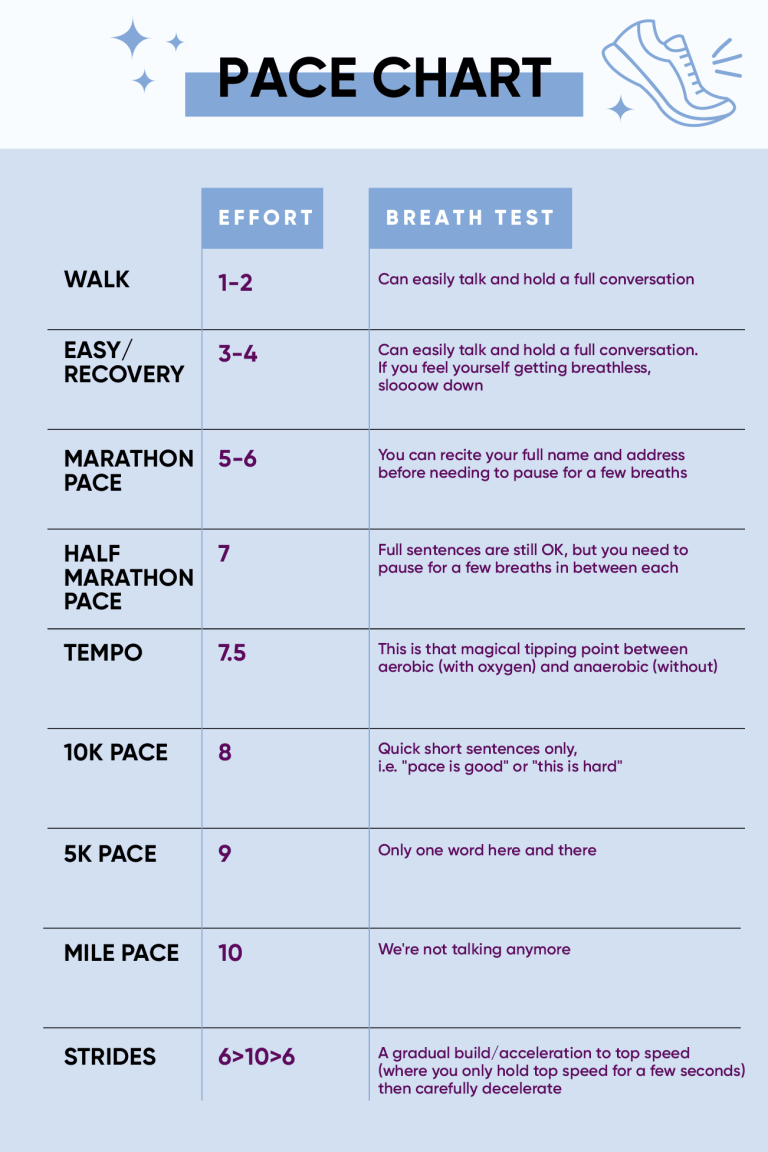Is It Safe to Run Marathon While Pregnant
Running a marathon while pregnant can be risky due to increased physical strain on the body. Consult with a healthcare provider before attempting.
Pregnancy is a beautiful journey filled with many changes, both physically and emotionally. However, when it comes to maintaining a high level of physical activity such as running a marathon, caution must be exercised. While staying active during pregnancy is beneficial for overall health, running long distances like a marathon can pose risks to both the mother and the baby.
It is essential to prioritize the safety and well-being of both you and your baby during this special time. Consulting with a healthcare provider before embarking on any intense physical activity is crucial to ensure that you are taking the necessary precautions. Let’s dive deeper into whether it is safe to run a marathon while pregnant and explore the potential risks and benefits associated with this activity.
Risks Of Running A Marathon While Pregnant
Running a marathon while pregnant poses potential risks due to increased strain on the body. Physically demanding activities may lead to complications and should be approached with caution. It’s important to consult with a healthcare professional before engaging in such intense physical exertion during pregnancy.
Potential Impact On Maternal Health
Running a marathon while pregnant can pose numerous risks to the health of the expectant mother. It is important to consider the potential impact on maternal health before undertaking such a strenuous physical activity. Here are some of the key risks pregnant women may face when running a marathon: 1. Increased risk of injury: The physical demands of a marathon can put excessive strain on the joints, ligaments, and muscles of the pregnant woman. This can lead to a higher risk of injuries such as sprains, strains, or even fractures. 2. Overheating and dehydration: Pregnant women are more susceptible to overheating and dehydration due to changes in their body’s temperature regulation and increased blood volume. Running for extended periods in a marathon can further elevate the risk of these conditions, which can have detrimental effects on both the mother and the developing baby. 3. Impact on cardiovascular health: While exercise is generally beneficial for cardiovascular health, running a marathon can push the heart rate to extreme levels, increasing the risk of complications. Pregnant women are already experiencing changes in their cardiovascular system, and the additional stress from a marathon may be harmful. 4. Hormonal imbalances: Intense exercise, such as marathon running, can disrupt hormonal balance in pregnant women. This disruption may have implications for the overall well-being of the mother and the development of the fetus. 5. Preterm labor and miscarriage: Running a marathon puts significant physical stress on the body, which can potentially trigger preterm labor or increase the risk of miscarriage. The excessive physical exertion may put strain on the uterus, leading to contractions that could be harmful to the pregnancy.Potential Impact On Fetal Health
In addition to the risks to maternal health, running a marathon while pregnant can also have potential consequences for the health of the developing fetus. Here’s what pregnant women need to be aware of regarding the potential impact on fetal health: 1. Decreased oxygen supply: High-intensity exercise like marathon running can divert blood flow away from the uterus to the working muscles, thereby reducing the oxygen supply to the fetus. This restricted oxygen supply can affect the baby’s growth and development. 2. Increased risk of birth defects: While the direct link between running a marathon and birth defects is not fully established, prolonged strenuous exercise may increase the risk of certain birth defects. It is essential to prioritize the health and well-being of the baby by avoiding unnecessary risks during pregnancy. 3. Impact on placental development: The placenta plays a crucial role in supporting the baby’s growth and development by providing essential nutrients and oxygen. Intense exercise, such as marathon running, can potentially impair placental development, resulting in decreased nutrient delivery to the fetus. 4. Premature birth: The increased physical stress placed on the body during a marathon can trigger early contractions and potentially lead to premature birth. Premature babies often face a range of health challenges and may require specialized medical care. 5. Long-term effects: Limited research exists on the long-term effects of marathon running during pregnancy on the child’s health. However, it is prudent to minimize potential risks and prioritize the well-being of both the mother and the baby. It is crucial for pregnant women to consult with their healthcare provider before engaging in any exercise regimen, including running a marathon. The healthcare provider will be able to assess the individual’s risk factors, overall health, and provide guidance tailored to the specific circumstances. Remember, the well-being of you and your baby should always be the top priority during pregnancy.Considerations For Pregnant Runners
Running a marathon while pregnant requires careful consideration and planning. Here are some important points for pregnant runners to keep in mind:
Consultation With Healthcare Provider
Before engaging in any physical activity, pregnant women should consult their healthcare provider. It is crucial to ensure safety for both the mother and the baby.
Adjusting Training Intensity And Duration
Pregnant runners should adjust their training intensity and duration based on their individual circumstances. Listening to the body and making necessary modifications is key to a healthy pregnancy.
Tips For Safe Running During Pregnancy
When it comes to running a marathon while pregnant, it’s crucial to prioritize safety and well-being for both the mother and the baby. Here are some essential Tips for Safe Running During Pregnancy:
Proper Hydration And Nutrition
Stay hydrated with frequent sips of water before, during, and after running to prevent dehydration.
Consume a well-balanced diet rich in fruits, vegetables, lean proteins, and complex carbs to provide essential nutrients for you and your baby.
Monitoring Body Signs
Pace yourself and pay attention to your body’s signals. If you feel lightheaded, dizzy, or experience any discomfort, stop immediately.
Monitor your heart rate and keep it within a safe range. Avoid overheating and exercising in extreme weather conditions.

Credit: www.bbc.com
Alternative Exercise Options For Pregnant Women
When it comes to maintaining a healthy lifestyle during pregnancy, exercise plays a crucial role. While running a marathon might be off the table, there are plenty of alternative options available for pregnant women to stay active and fit. From low-impact cardiovascular activities to strength training and yoga, there are numerous ways to keep your body moving and promote overall well-being. In this blog post, we will explore these alternative exercise options that are safe for expectant mothers.
Low-impact Cardiovascular Activities
Engaging in low-impact cardiovascular exercises is an excellent way for pregnant women to get their hearts pumping without putting excessive strain on their joints. Activities like brisk walking, swimming, and cycling are gentle on the body, reducing the risk of injury while still providing cardiovascular benefits.
Here are some key low-impact cardiovascular activities that pregnant women can consider:
- Brisk walking: A simple yet effective exercise that can be easily incorporated into your daily routine.
- Swimming: The buoyancy of water supports your growing belly, making it a safe and refreshing way to stay active.
- Cycling: Opting for stationary or recumbent biking reduces the risk of falls and minimizes impact on your joints.
By choosing these low-impact activities, you can maintain your fitness level and boost your mood while minimizing the risk of injury. Remember to start slow, listen to your body, and consult with your healthcare provider if you have any concerns.
Strength Training And Yoga
In addition to cardiovascular exercises, strength training and yoga can be a great way to strengthen muscles, improve flexibility, and promote relaxation during pregnancy. These activities help prepare your body for the physical demands of motherhood and can alleviate common pregnancy discomforts.
Consider incorporating the following strength training exercises into your routine:
- Squats: Strengthen your lower body by performing squats, focusing on maintaining proper form.
- Modified push-ups: Safely target your upper body by performing modified push-ups against a wall or on an elevated surface.
- Pelvic floor exercises: Strengthening your pelvic floor muscles can help with childbirth and postpartum recovery. Try Kegels or consult a prenatal fitness specialist for guidance.
As for yoga, prenatal yoga classes specifically designed for pregnant women can provide numerous benefits. These classes focus on gentle stretches, breathing techniques, and relaxation exercises, promoting a sense of calm and well-being.
Remember to always listen to your body and modify exercises as necessary. If you are new to strength training or yoga, consider seeking guidance from a qualified instructor who specializes in prenatal exercise.
Personal Stories And Expert Perspectives
When considering the safety of running a marathon during pregnancy, it’s essential to weigh personal experiences alongside expert insights. Here, we delve into the stories of pregnant marathon runners and gather perspectives from obstetricians and midwives to provide a comprehensive understanding of this topic.
Experiences Of Pregnant Marathon Runners
Pregnant marathon runners bring a unique perspective to the discussion of exercise during pregnancy. Their firsthand accounts shed light on the physical and emotional challenges they faced while training and participating in a marathon. Their experiences provide valuable insights for other expectant mothers considering similar endeavors.
Insights From Obstetricians And Midwives
Obstetricians and midwives play a crucial role in guiding pregnant women on matters relating to physical activity and overall well-being. Their expertise allows them to offer professional perspectives on the safety of running a marathon during pregnancy. Their insights, backed by medical knowledge, help inform expectant mothers about the potential risks and benefits associated with such rigorous exercise.

Credit: www.themotherrunners.com

Credit: www.youtube.com
Frequently Asked Questions For Is It Safe To Run Marathon While Pregnant
Has A Pregnant Woman Ever Run A Marathon?
Yes, there have been cases of pregnant women running marathons. However, it is important for pregnant women to consult their healthcare provider before participating in any high-intensity exercise.
How Far Into Pregnancy Is It Safe To Run?
It is safe to run during pregnancy up to the second trimester, around 20-24 weeks. Consult your doctor for personalized advice.
Can You Run A Half Marathon 4 Months Pregnant?
Running a half marathon at 4 months pregnant is not recommended due to potential risks. Listen to your body and consult with your healthcare provider for safer exercise options during pregnancy.
Conclusion
Running a marathon while pregnant can be a topic of concern for many expectant mothers. While some may be inclined to continue their running routine, it is crucial to prioritize the safety and well-being of both the mother and the baby.
Consulting with a healthcare professional is essential to determine the suitability of running during pregnancy. Additionally, adapting exercise routines, listening to the body’s cues, and understanding the potential risks can help make an informed decision. Ultimately, each pregnancy is unique, and the decision to run a marathon should be based on individual circumstances and medical advice.






